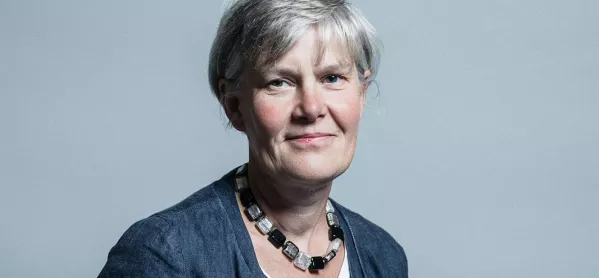Shadow education secretary Kate Green has warned that schools need to teach pupils “a wider understanding of the world they’re growing up in” rather than just teaching skills for future employment and “cramming their heads full of facts”.
And she says education “has become a bit joyless” as a result of a “narrow” national curriculum, which is “information-heavy and traditionalist”.
Speaking exclusively to Tes, the Labour MP for Stretford and Urmston said: “We need to start doing things very fundamentally differently or we are going to do a disservice to the present generation of children as well as those from years to come”.
Curriculum: ‘Internet should be a formal subject in schools’
Brutal, better, intense: Teachers share first impression of curriculum-focused inspections
Green: GCSE 2021 grading ‘needs to be regional’
Ms Green added: “We’ve got a curriculum now that’s information-heavy. It’s traditionalist in its approach and while, of course, you do want children to acquire a high level of the basic essential skills they need all through their lives and for their future studies and employment, education has become a bit joyless, and that’s not the fault of schools.
‘Information-heavy’ curriculum in schools
“Teachers have gone to great lengths to make schools happy secure, safe places for children to be, but the actual content of learning isn’t all it should be.
“There needs to be less rote-style learning and more help for children to develop their own faculty for critical thinking, asking questions and interrogating data, and working collaboratively with one another.
“[Education secretary] Gavin Williamson is quite a fan of children sitting facing the front in rows, whereas I’m quite a fan of children sitting in groups and working in teams and learning to cooperate and work on a basis of helping each other to share their learning experience and support one another to learn and improve.
“What we have now is quite a narrow curriculum. I want to see something that is much broader that gives proper recognition to and space to the arts, culture, wellbeing, health and sport [and a] wider understanding of the world which children are growing up in.
“I want an education system that’s inclusive. I’ve been very, very interested in the campaign of the black curriculum and other students. All children need to feel that their identity is respected and valued in school. And for children with special educational needs and disability, we need to make sure schools are giving them the best opportunity.”
Ms Green said that while Ofsted reforms last year had “made some steps” towards encouraging a broader curriculum, the current accountability system and league tables “still didn’t motivate and incentivise teachers and school leaders” to offer a variety of subjects.
She said: “We need to have a very big look at the way our accountability system actually works because it doesn’t deliver schools’ improvement and it isn’t helping us to achieve that broader curriculum.
“This is not about compromising on standards. We’re not saying we want to make school less challenging. We want children to be stretched to their full potential but we want a supportive, collaborative, cooperative environment for them to do that in, and we want teachers to be part of that and feel that their professionalism is recognised and that what they’re doing is enabling children to learn and develop their learning skills, not simply cramming their heads with facts.”
A Department for Education spokesperson said: “We have improved the curriculum and reformed GCSEs so that all children and young people benefit from an ambitious, broad and balanced education.
“That includes core subjects, alongside the arts, health, PE and sports. Schools have the flexibility over the precise detail so they can teach lessons that are right for their pupils.”




